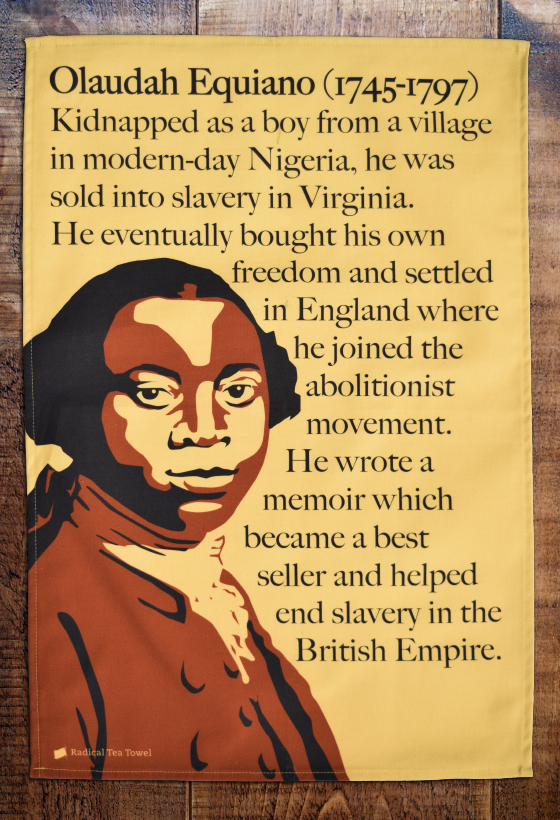Olaudah Equiano: Bought his Freedom, Wrote his Memoir, Changed the World
Posted by Pete on 16th Oct 2018
In the age of empire, the British state always liked to keep its most brutal behaviour in the colonies.
With massacres like Amritsar (India, 1919) taking place far away from mainland Britain, the false impression of Whitehall as a peaceful power compared to countries like Imperial Germany or the USSR was built up.
But every now and then in the history of the British Empire, the repressed and colonised have come all the way to the imperial heartland with a suitcase full of grievances and criticism.

Shaking the British Empire
Rarely did these journeys fail to cause a stir under the foundations of the Empire. Sometimes they could unleash world-changing earthquakes.
The arrival of the American revolutionary John Adams as the new US Ambassador to Britain in 1785 ruffled elite feathers. The gentlemen of England were forced to come to terms with the idea of a former colony as an independent state.
And when the great Republican leader Michael Collins arrived in London in 1921 to begin negotiating Irish independence with Lloyd-George, Britain's ruling-class at last began to realise the Empire was dying. If even England's closest colony had to be allowed its right to self-determination, then all the rest would soon follow.
But before both of these colonial visitors came Olaudah Equiano.
The interesting narrative of Olaudah Equiano
Born today 273 years ago (we think) in modern-day Nigeria, Equiano was perhaps more personally responsible than anyone else for the defeat of the British slave trade - one of the vilest institutions in the history of humankind.
Equiano was kidnapped, along with his sister, soon after his birth in 1745.
Over the next two decades, this kid was thrown through the inhuman cruelty of Britain's slave system. He was trafficked across the Atlantic to Barbados and then Virginia in a lethally overcrowded slave ship, then bought and sold a number of times.
Corporal punishment was routine. For African slaves, barbaric treatment was the norm; civility the exception.
But in 1766, Equiano received a degree of civility (in a very relative sense of the word) when his owner, the American Quaker and merchant Robert King, allowed him to purchase his own freedom for £40 (more than £5,000 in modern money).
Equiano had been able to raise the funds by working in King's trading business in the Caribbean.
King wanted Equiano to stay on in the American colonies as a commercial partner, but the African knew recapture was too great a risk if he remained in the area. He moved east, to London.
But Equiano didn't just seek safety in England (understandable though that would be!). By the 1780s, he was a committed member of the abolitionist movement.
Igniting the abolitionist movement
Equiano chose to devote his life in England to agitating against the slavery which was tearing the soul out of Africa, and he found ready allies in this struggle among the members of the Society for the Abolition of the Slave Trade.
Established in 1787, it counted among its members and friends some of contemporary England's foremost radicals. Men and women like the philanthropist Elizabeth Heyrick and the famous parliamentarian William Wilberforce.
Even the wealthy manufacturer Josiah Wedgwood contributed a popular medallion showing a chained African with the words "Am I Not A Man And A Brother?"
But it was Equiano's memoir, inconspicuously titled 'The Interesting Narrative of the Life of Olaudah Equiano' (published 1789), which became the abolitionists' silver bullet.
It detailed at length the horrors of life under the slave trade and how it was completely at odds with Christian morality.
Equiano's book quickly became a best seller, undermining the acceptability of slavery among those at the very heart of the British Empire.
He died soon after, in a world still scarred by human bondage. But, with the continued agitation of Equiano's friends and comrades like Wilberforce, the Quaker Thomas Clarkson, and the great radical Thomas Paine - all of them aided by the grim revelations in 'The Life of Olaudah Equiano' - the African slave trade was officially abolished in 1807.
That's quite a legacy for a man who was kidnapped as a child and stolen away into a world full of people who wanted him to be nothing more than free labour.
